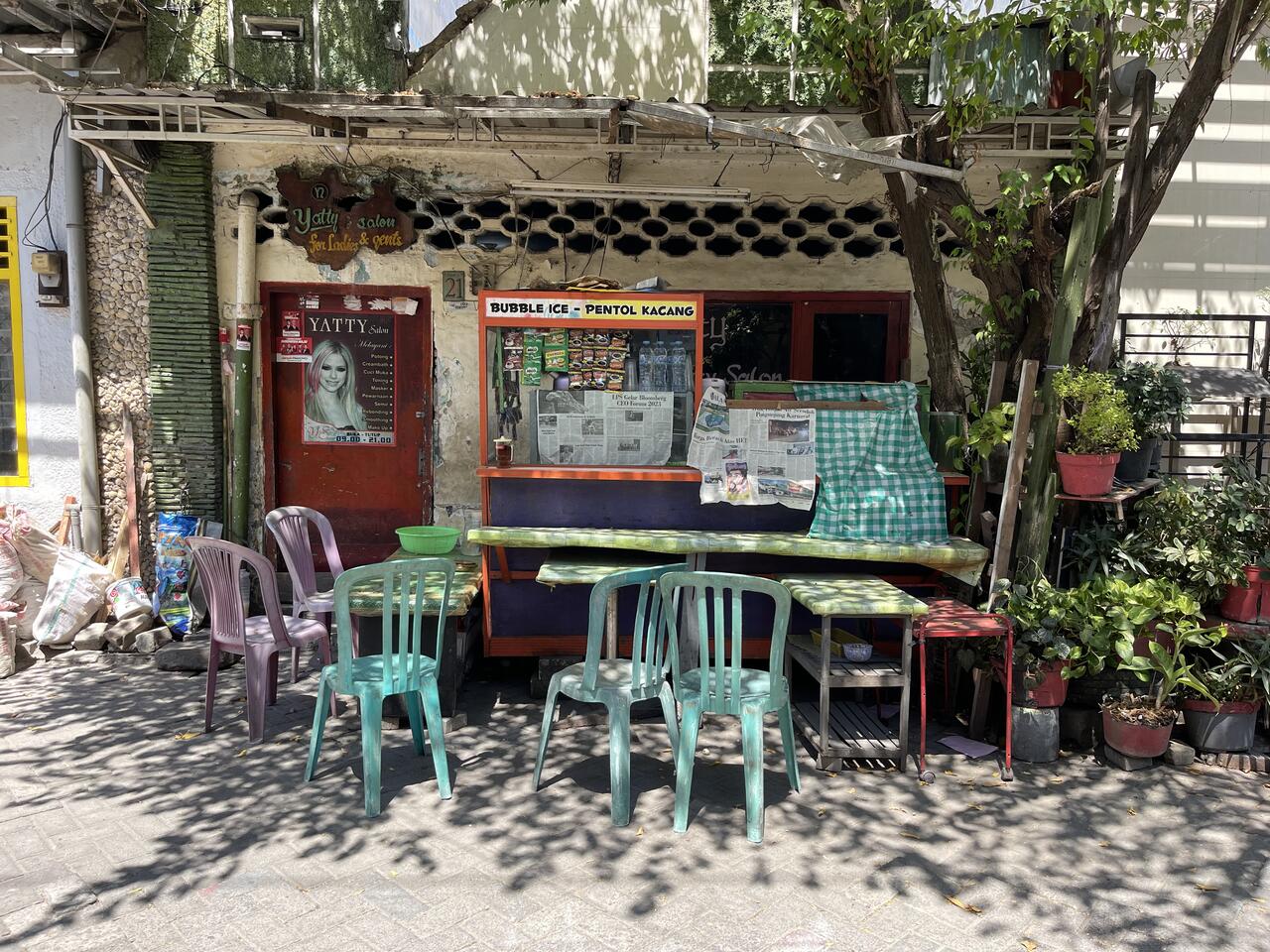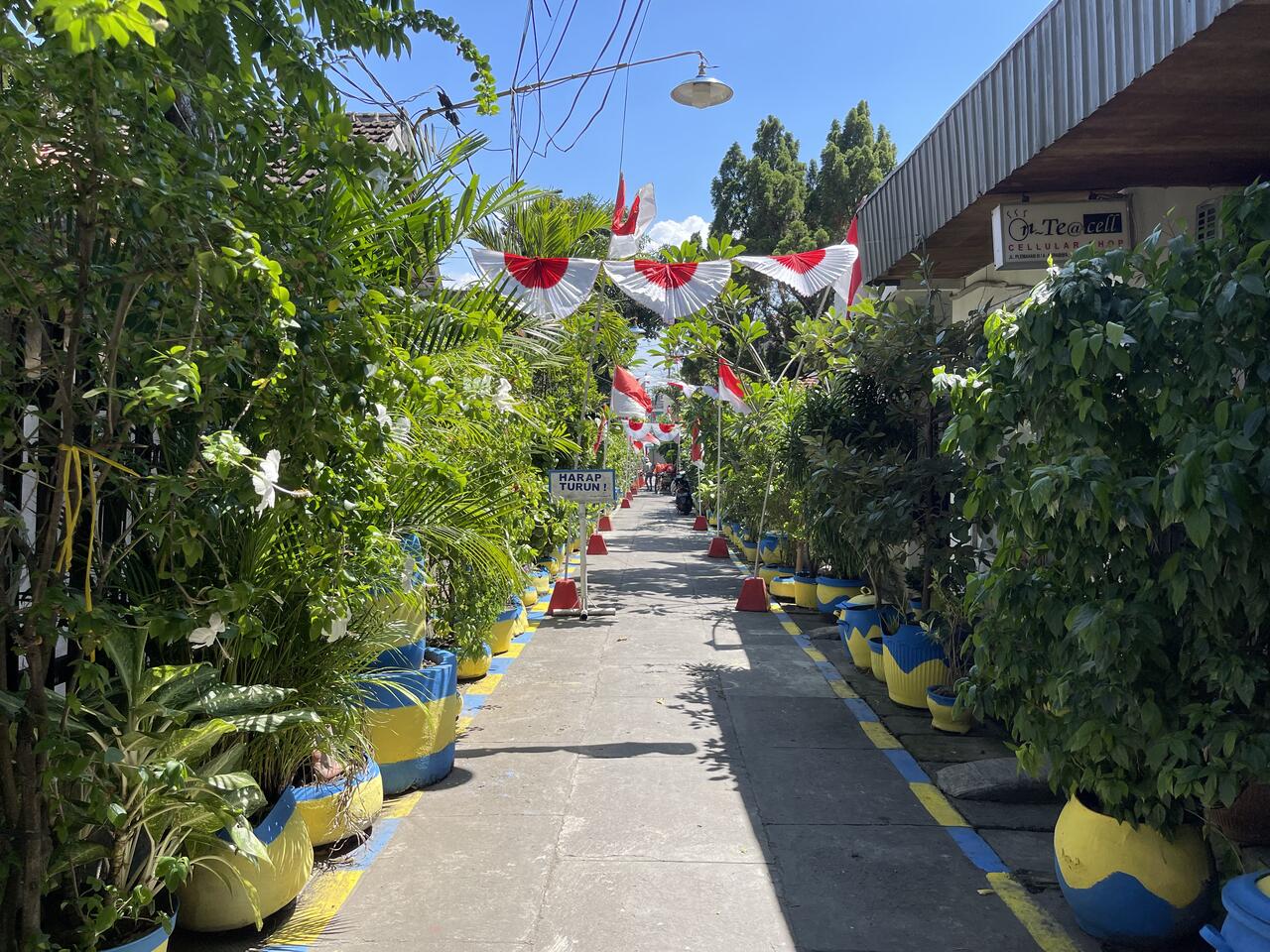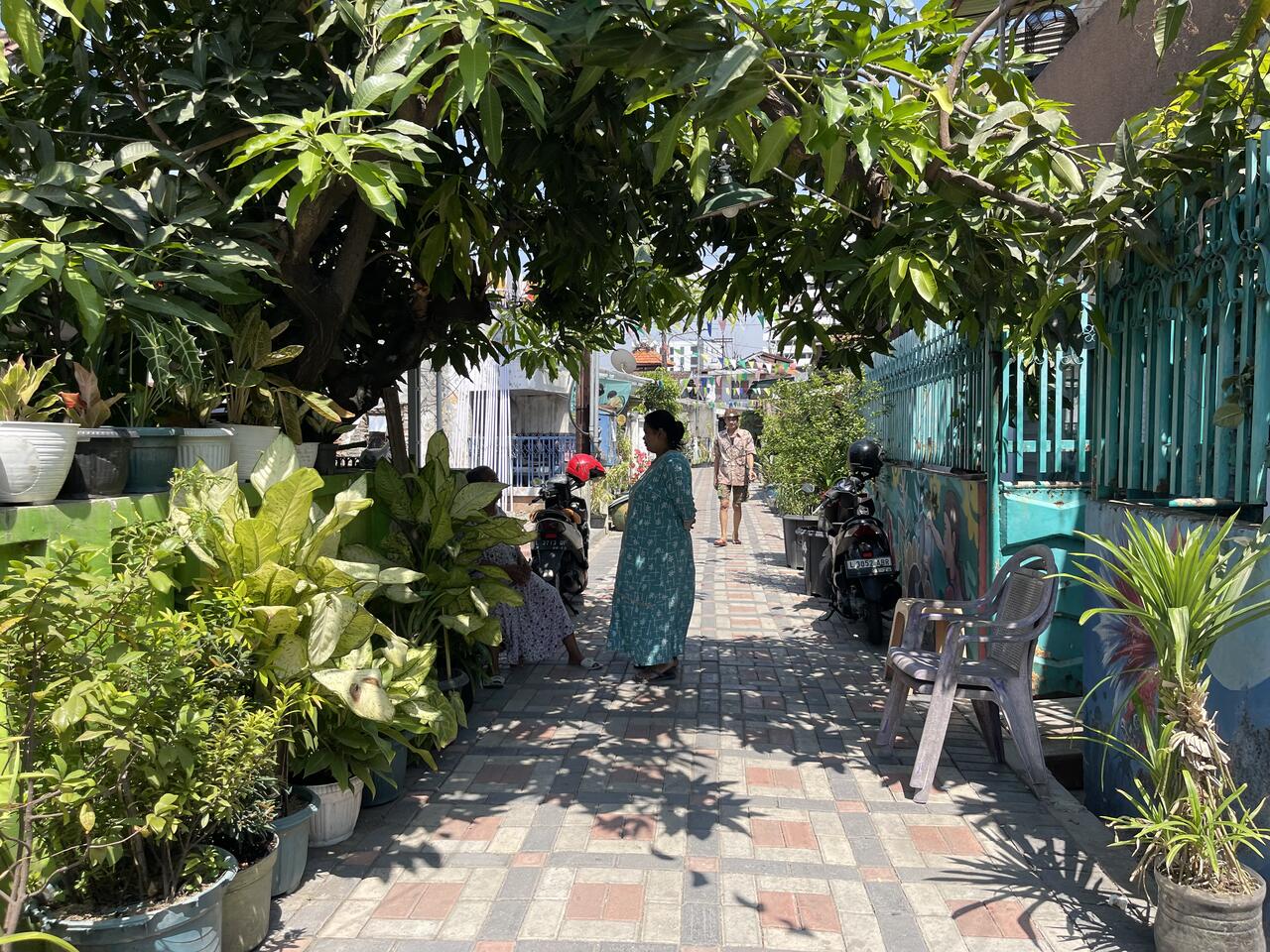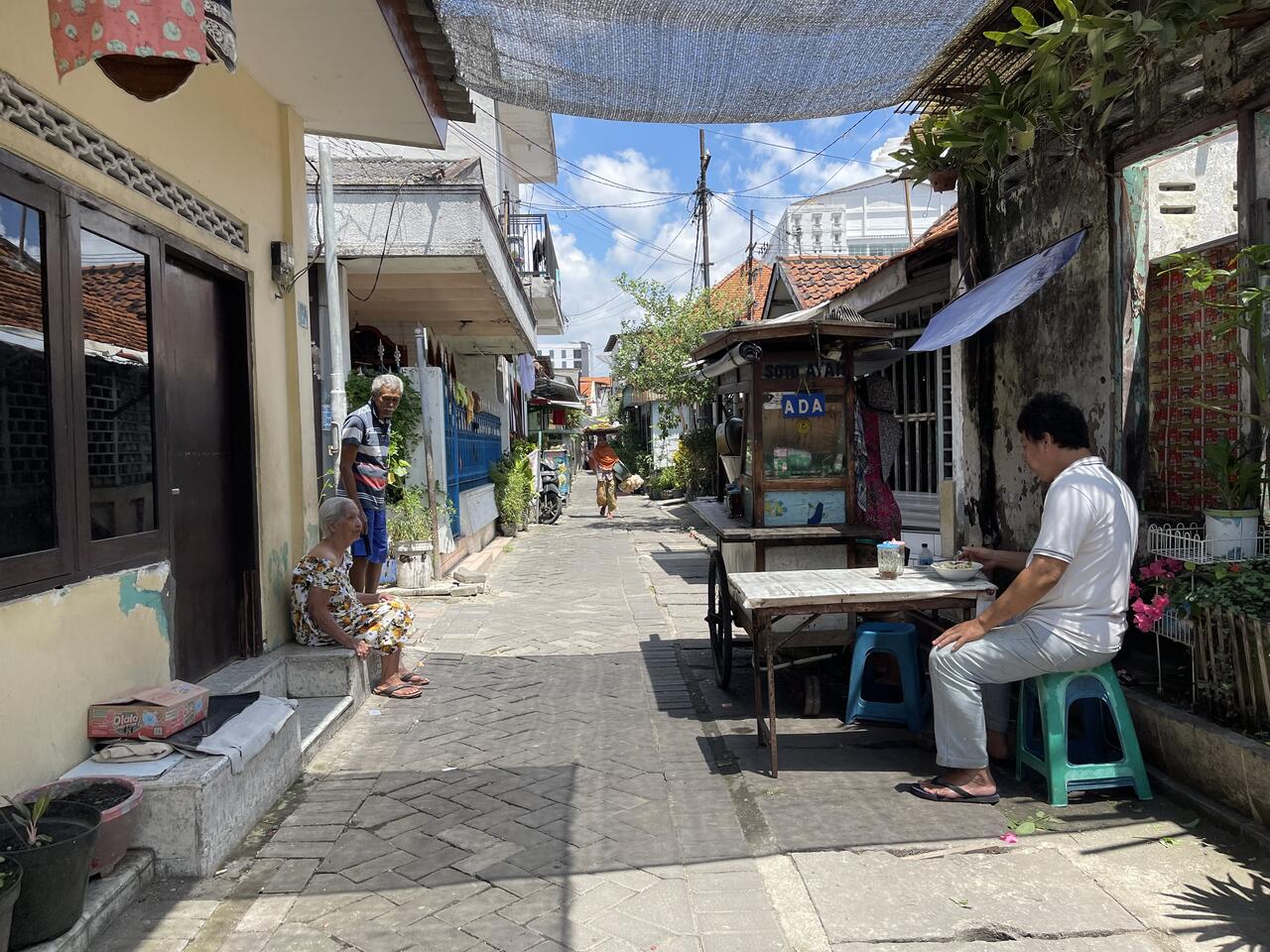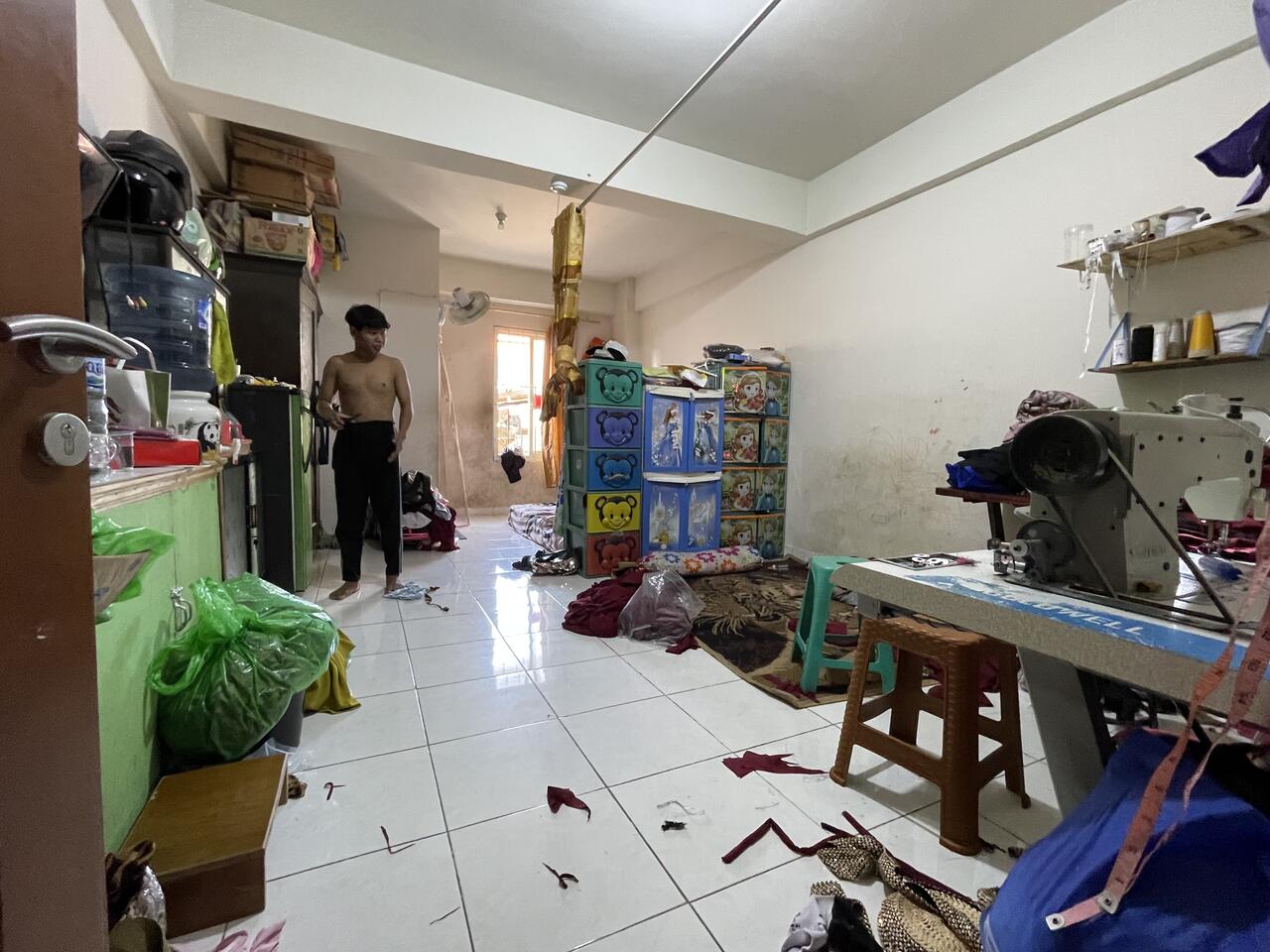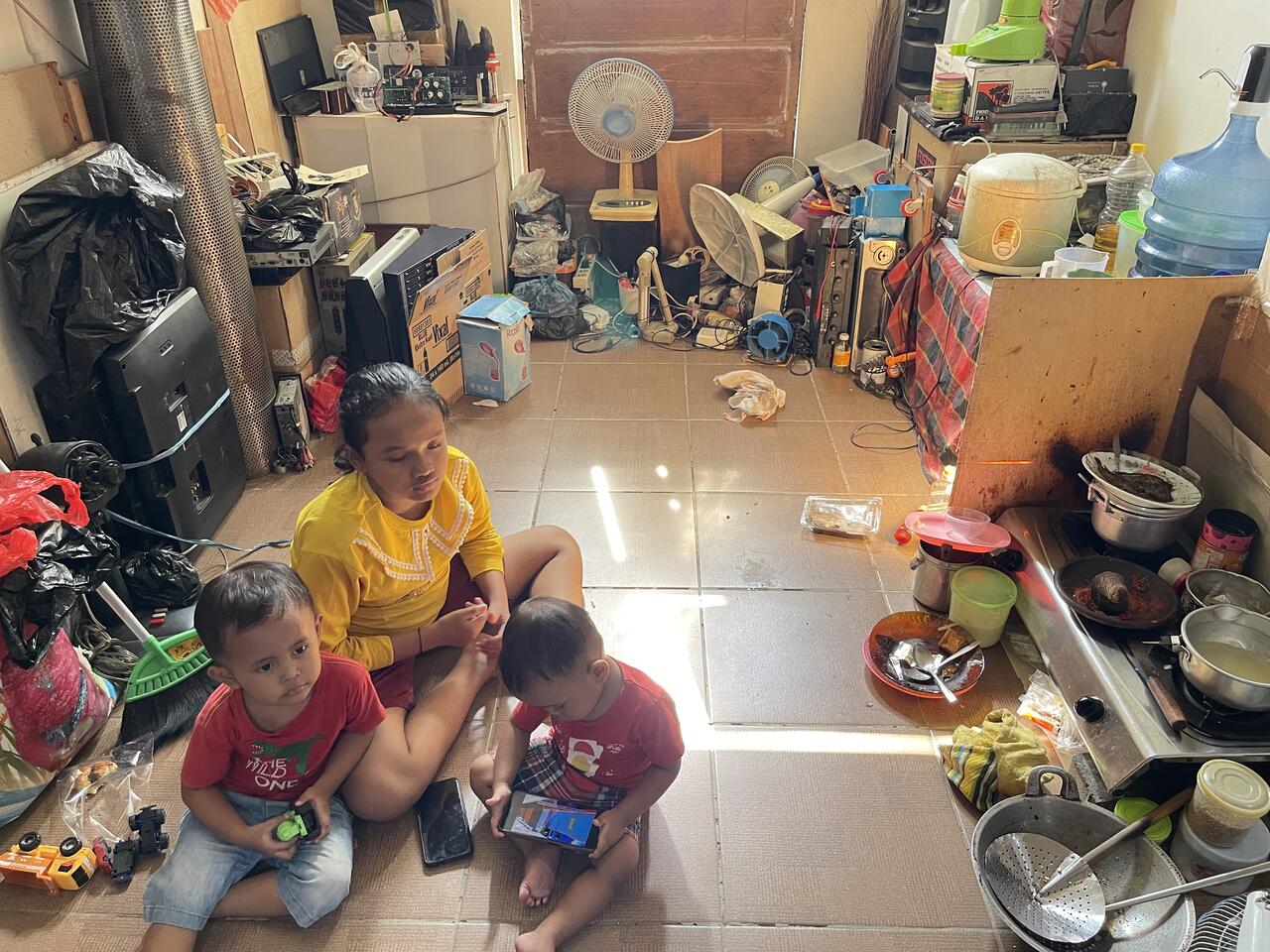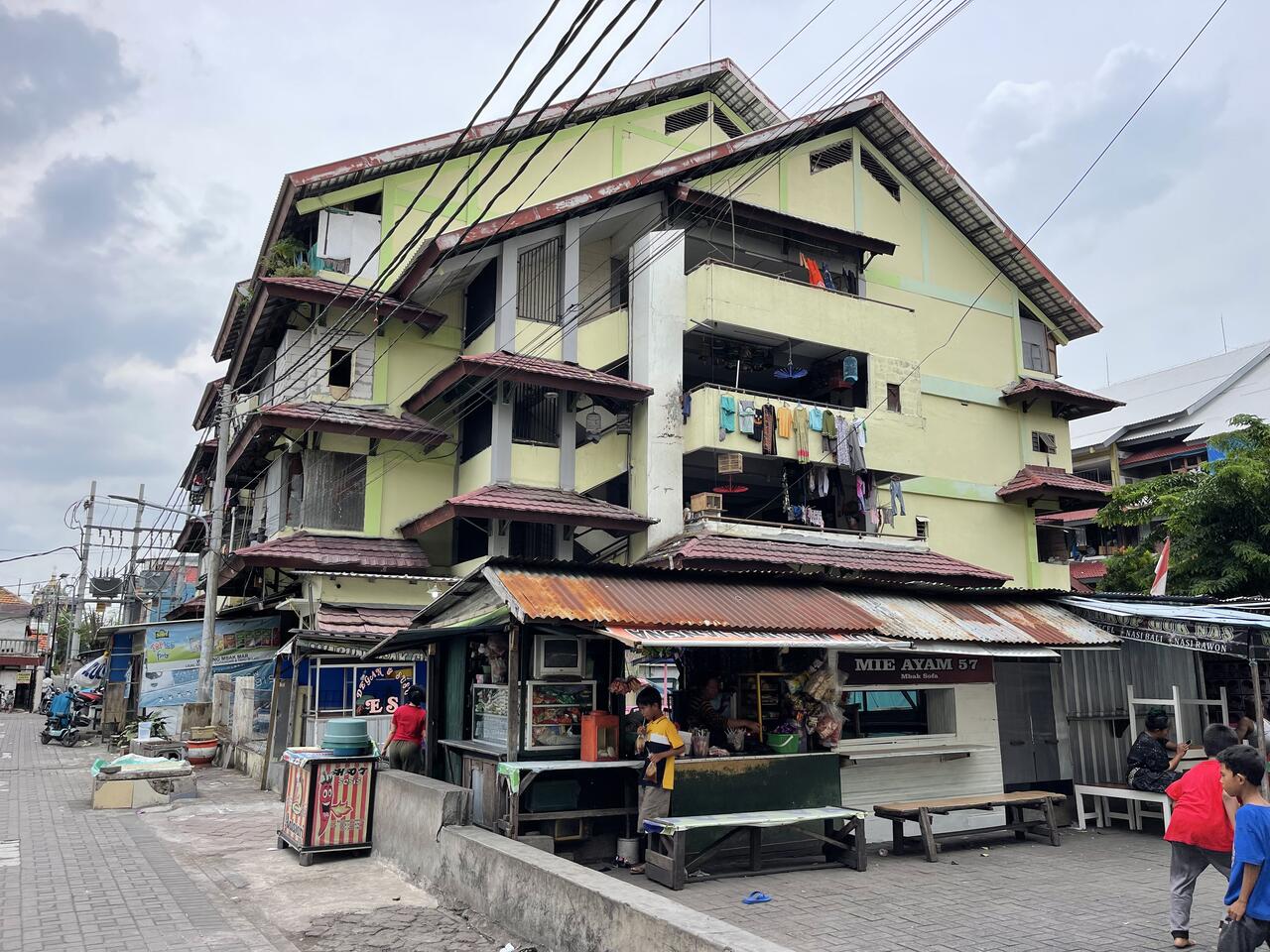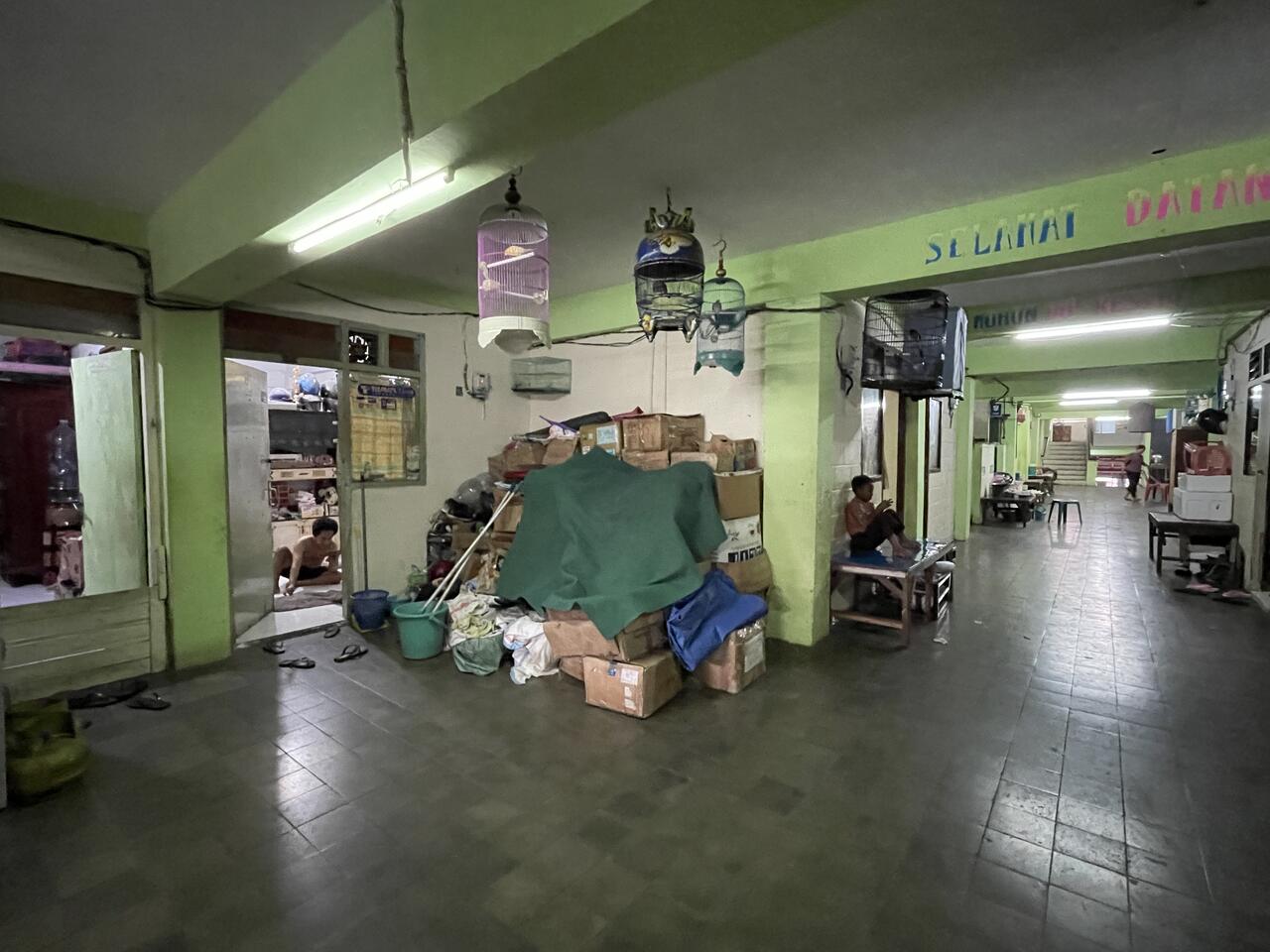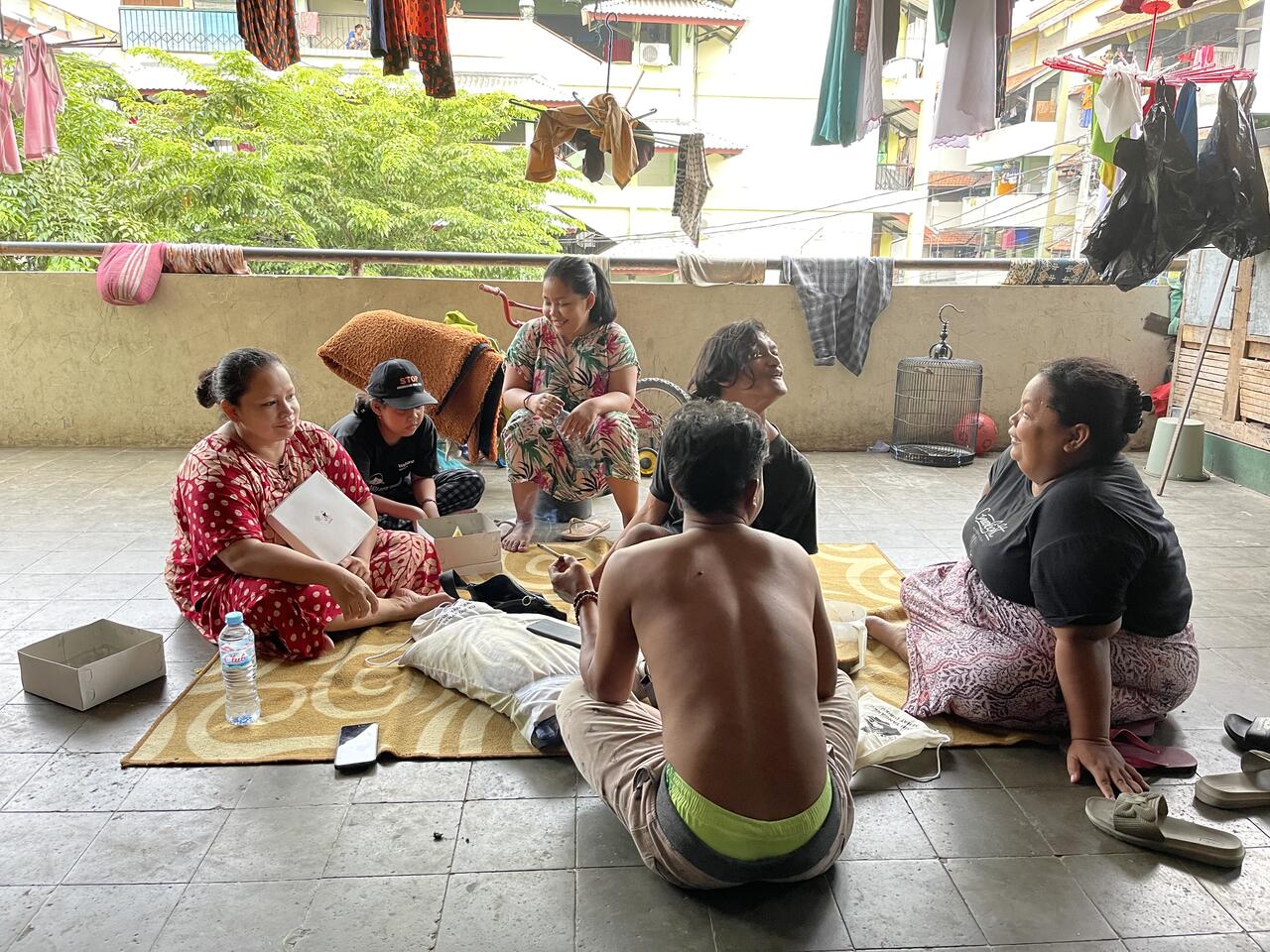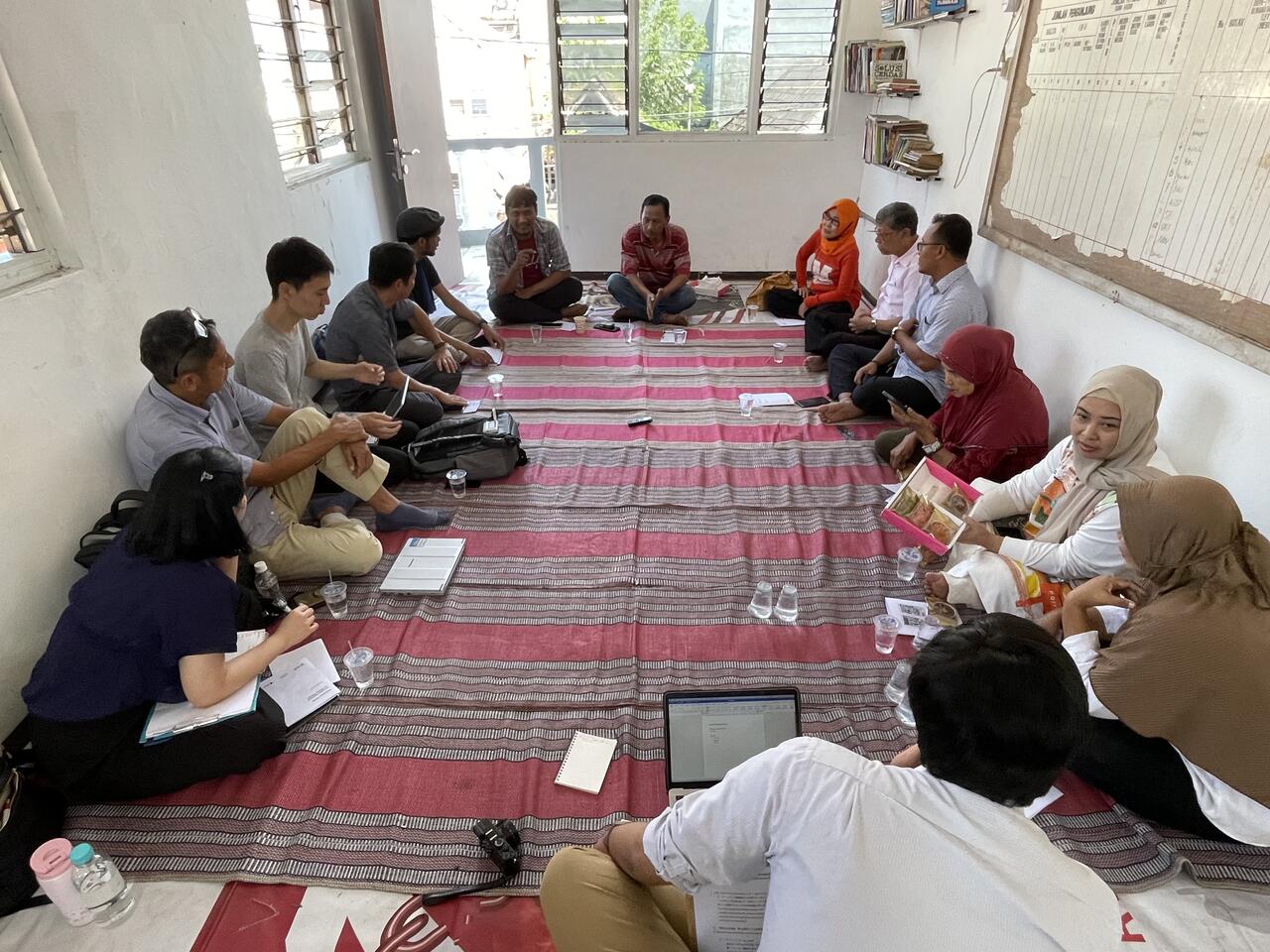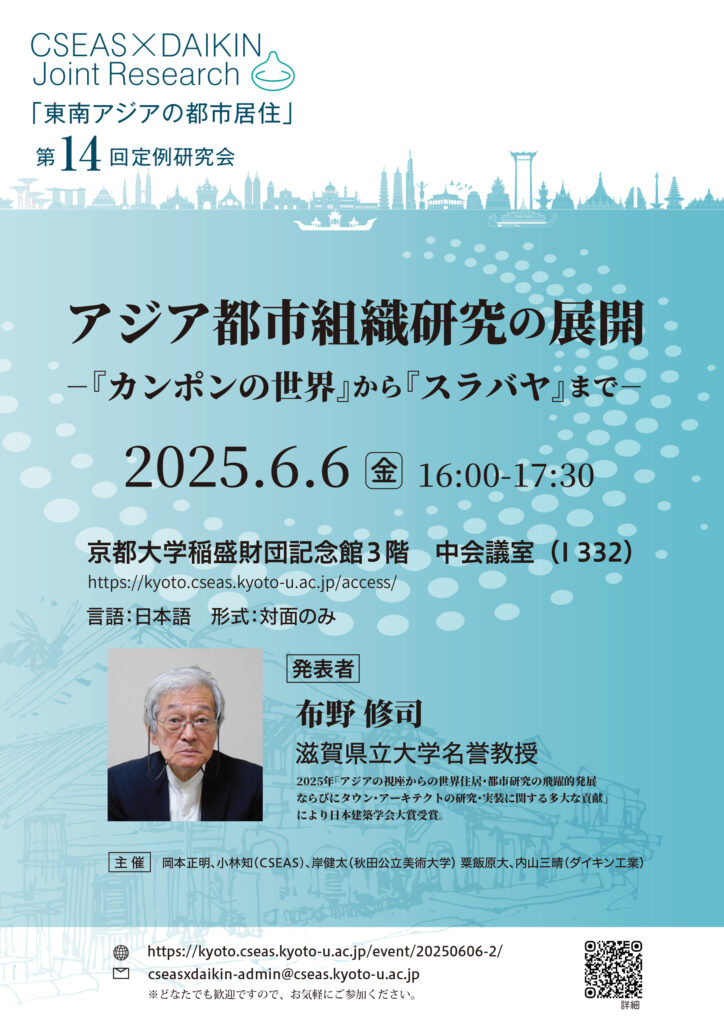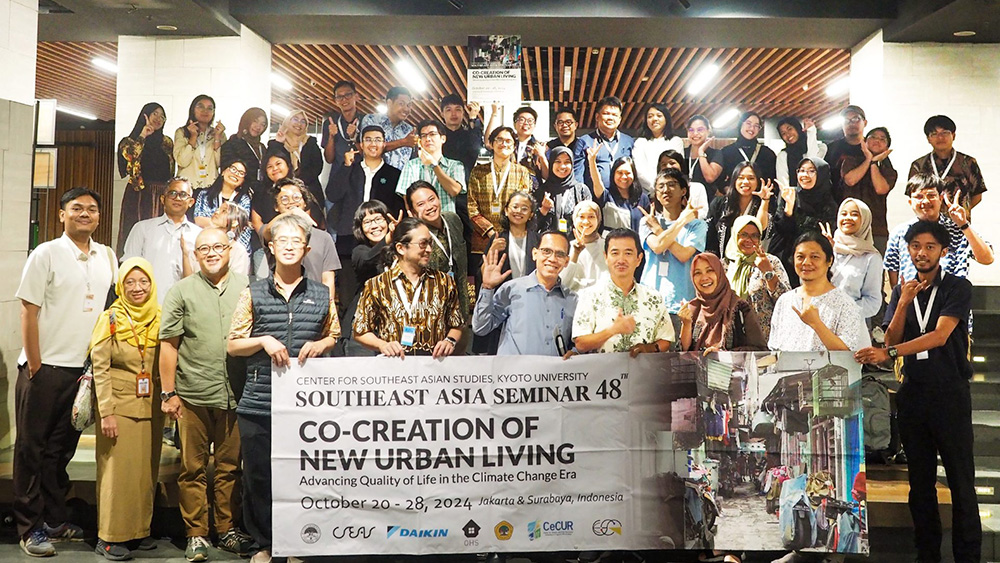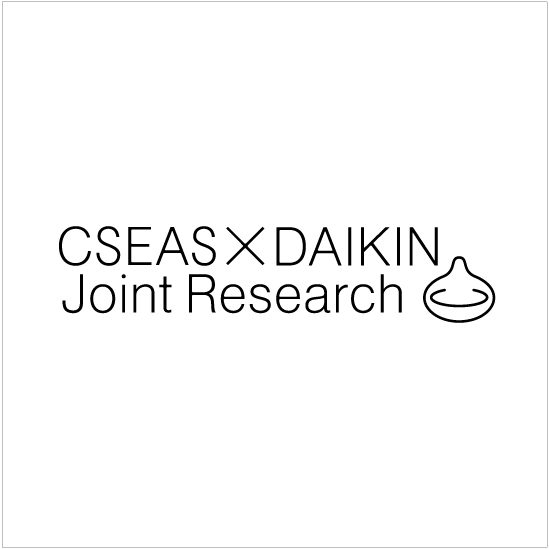京都大学東南アジア地域研究研究所(CSEAS)は、ダイキン工業(DAIKIN)をパートナーとする産学連携共同研究を2021年4月から始めました。
科学と技術、およびそれに伴う学知を社会と結びつける。21世紀の世界に暮らす我々がより良き社会を創造するには、既存の枠組みを超えた専門家同士の協力や、市民との協働をこれまで以上に柔軟に、多様な形で推進することが望まれています。産学連携というと、工学や経済の分野での大学と企業の協働がまず思い浮かびます。文理融合を特徴とする地域研究の領域では、従来、企業との協働は盛んでありませんでした。
CSEAS×DAIKINの共同研究は、これまで触れあうことのなかった者同士が、新しい社会貢献と知の創造を模索し、推し進める絶好のチャンスです。それは、社会が大学や企業に対して抱く期待、つまり未来への望ましい変革の方向を示し、具体的な動きを生み出すことに対する応答です。
Kyoto University’s Center for Southeast Asian Studies (CSEAS) has been collaborating with DAIKIN Industries in an industry-academia joint research program since April 2021.
Given the global challenges of the 21st century, we must promote cooperation among experts beyond existing frameworks and collaboration with ordinary citizens in more flexible and diverse ways than ever before.
When we think of industry-academia collaboration, we often first think of universities and companies working together in the fields of engineering and economics. Area Studies, which is inherently interdisciplinary across the natural sciences, humanities, and social sciences, has not actively collaborated with the industry sector in the past.
The CSEAS x DAIKIN program is an excellent opportunity for those who have never been in contact with each other to exchange knowledge, perspectives, and methodologies—to stimulate a synergy toward creating meaningful social contributions.
Sejak April 2021, Center for Southeast Asian Studies (CSEAS) Kyoto University menjalin kolaborasi dengan DAIKIN Industries melalui program penelitian bersama industri-akademisi.
Menghadapi tantangan global abad ke-21, kita perlu memperkuat kerja sama antar ahli lintas disiplin serta melibatkan masyarakat dengan cara yang lebih fleksibel dan beragam. Selama ini, kolaborasi industri-akademisi sering dikaitkan dengan bidang teknik atau ekonomi. Padahal, Studi Wilayah (Area Studies)—sebuah bidang studi yang menggabungkan ilmu alam, humaniora, dan ilmu sosial —sebenarnya memiliki potensi besar untuk bersinergi dengan sektor industri, meski belum banyak ditelusuri sebelumnya.

